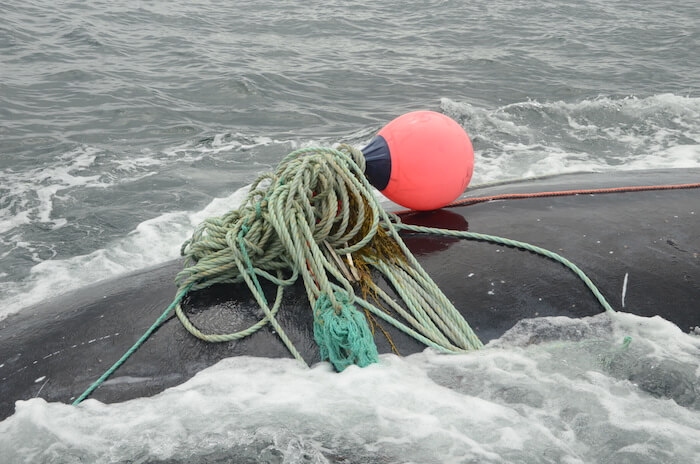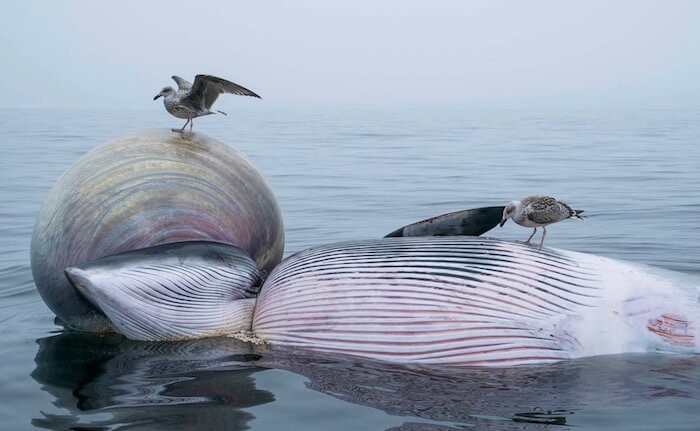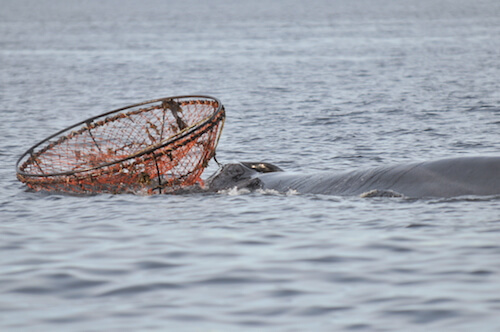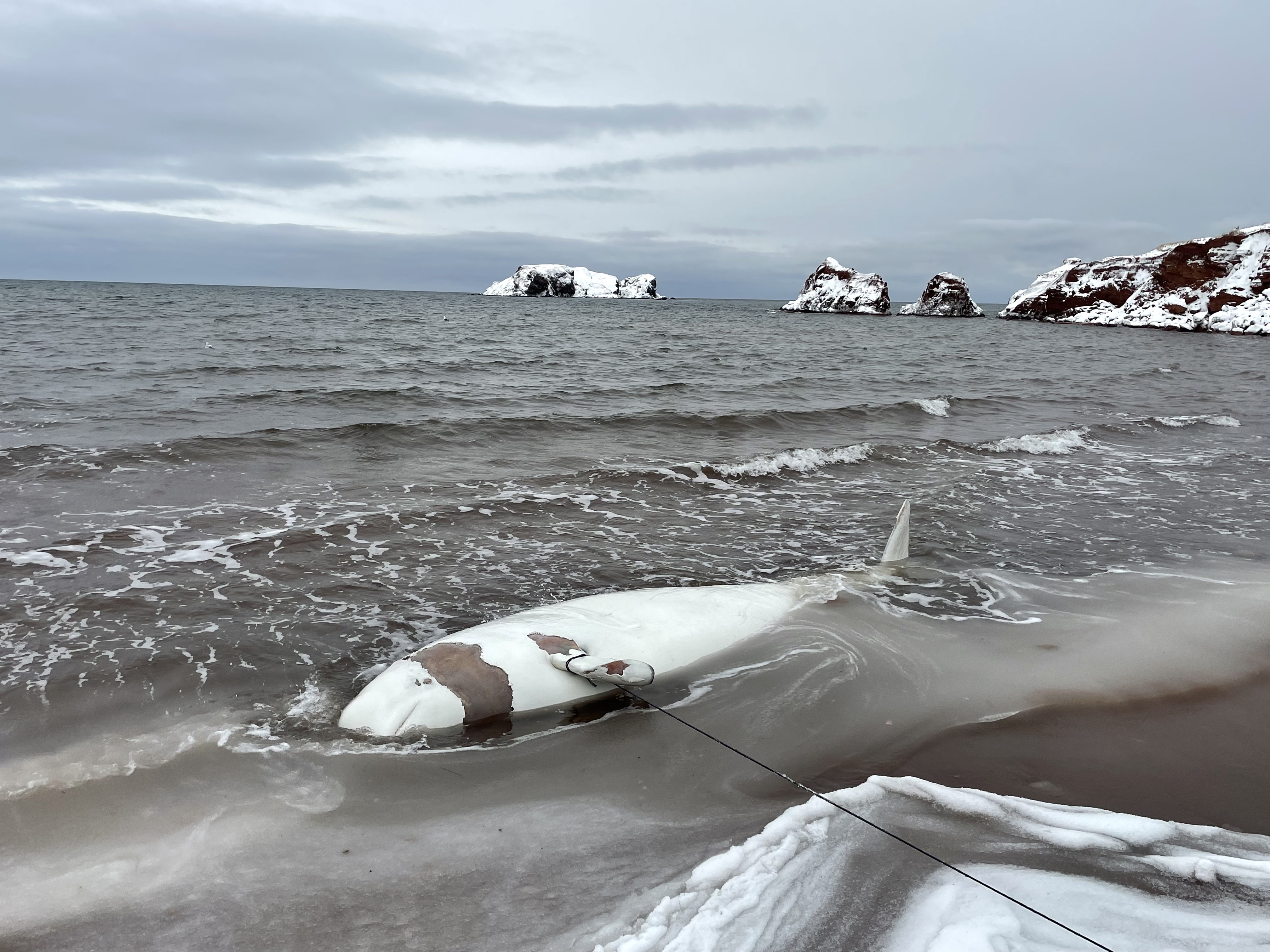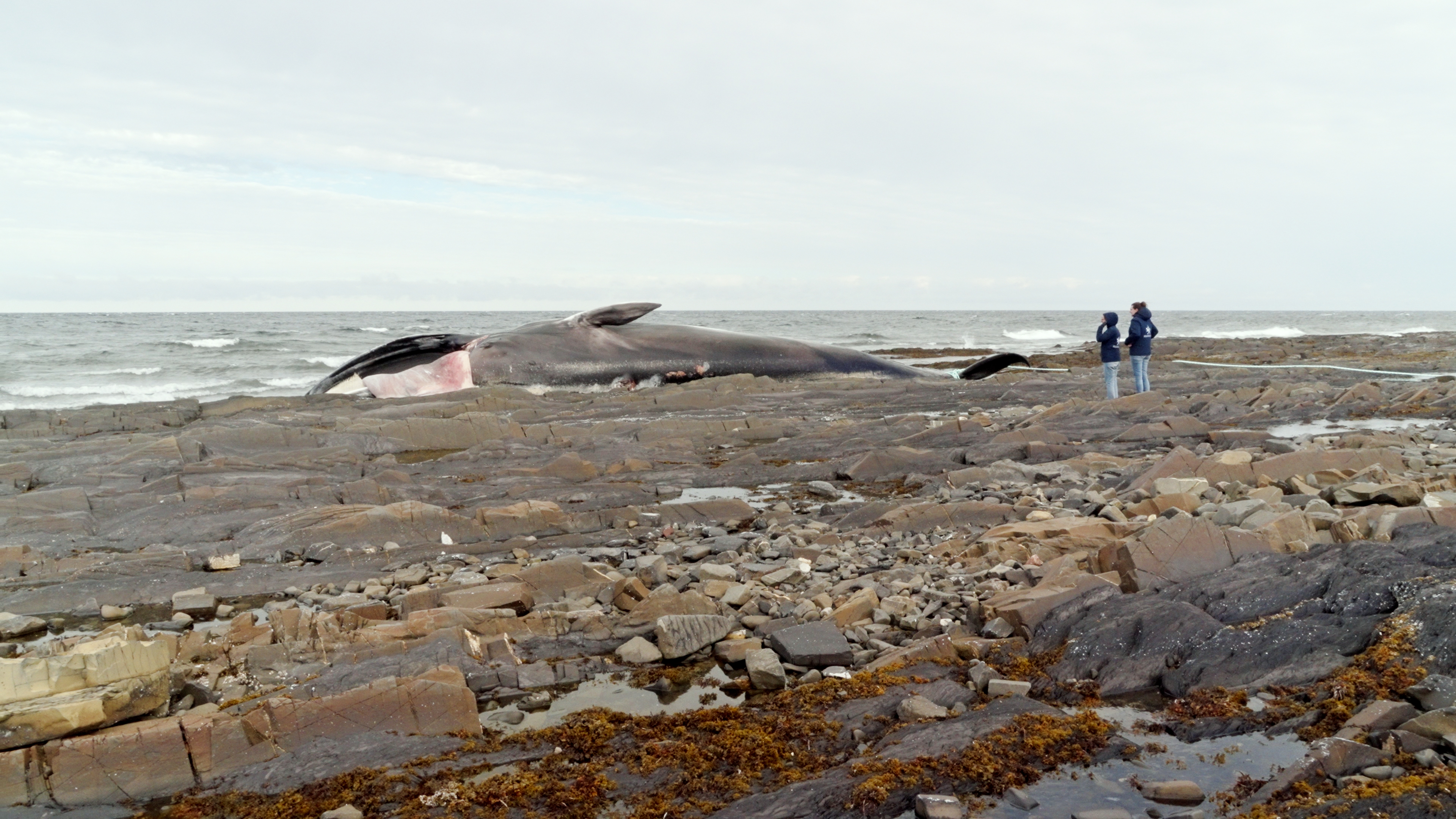The commercial fishing season is well underway. This is the time of year when Mammal Marine Emergencies reminds fishermen that if they happen to see a whale entangled in fishing gear (weather live or dead), trapped or adrift, it is important to call 1-877 -7baleine before attempting any intervention.
With your cooperation, the Marine Mammal Emergencies team will be able to determine what actions should be taken. Rescuing the animal, retrieving the material or collecting valuable scientific data for the protection of whales are all actions that might be considered. Above all, it’s about your safety and that of the whale.
The Quebec Marine Mammal Emergency Response Network has been in existence since 2004. It aims to rescue marine mammals that have been victims of incidents in waters of the St. Lawrence within Quebec’s jurisdiction. The 24/7 toll-free number connects you to a Marine Mammal Emergencies call centre representative who is in communication with teams of specialists.
Every year, we handle between 3 and 20 incidents across Quebec involving whales entangled in fishing gear; some are already dead while others are still alive when fishermen report them. In several of these cases, interventions have been attempted, whales have been rescued, and fishing gear losses have been limited. In no circumstances can a fisherman be held responsible for the entanglement of an animal in their material: you can therefore report a problem without fear of legal consequences.
In 2017, Marine Mammal Emergencies handled 8 cases related to entanglements in the Estuary and the Gulf of St. Lawrence, including 3 cases involving humpbacks, 3 cases of minke whales and 1 case of a right whale. On three occasions, fishermen and boaters found the whales entangled alive in fishing gear and cut the ropes that were visible prior to calling the emergency number.
This underscores the importance of reiterating the message that it is critical not to take any action without first reporting the situation to specialized responders. Working together with trained, experienced teams makes it easier to carry out a strategic, co-ordinated and safe response (if such response is possible) for the animal, for yourself and for your equipment.
Safety first
Last summer’s death of fisherman Joe Howlett of New Brunswick during an attempt to release a right whale in the Gulf reminds us of the high-risk nature of such interventions. Every situation reported by fishermen must be carefully analyzed before a response plan is deployed.
Fisheries and Oceans Canada (DFO) is responsible for rescuing sea turtles and marine mammals in distress. In collaboration with conservation groups and non-governmental organizations, DFO has established marine mammal incident response networks in all marine regions of Canada under the umbrella of the Marine Mammal Response Program.
Regardless of the species, each whale entanglement case reported to Marine Mammal Emergencies will be reviewed by DFO teams. Any specialized responder called upon to intervene must have his or her response plan approved by Fisheries and Oceans Canada and must clearly demonstrate how the safety of responders will be ensured.
DFO is also actively working with experts to develop a training program for responders who are called upon to act in situations involving large cetaceans such as the North Atlantic right whale.
If you see a live or dead whale entangled in fishing gear, remain in the vicinity and contact Marine Mammal Emergencies immediately (1-877-7baleine).
Make sure you can provide the following information:
State and behaviour of the animal:
- Description of the whale (colour, size, head shape, fins);
- Breathing (frequency and duration of dives);
- Movement (speed/direction or stationary); and
- Vigour and signs of exhaustion.
Details on entanglement:
- How the whale seems to be caught and where the ropes are;
- Type of fishing gear (rope colour, buoys, traps); and
- Which commercial fishing area.
Location:
- Precise location (latitude and longitude); and
- Weather and state of sea (waves, wind, fog, tide).
The teams from the Quebec Marine Mammal Emergency Response Network would like to thank all fishermen in advance for their collaboration, which is essential for the success of this initiative to help the whales of the St. Lawrence.


